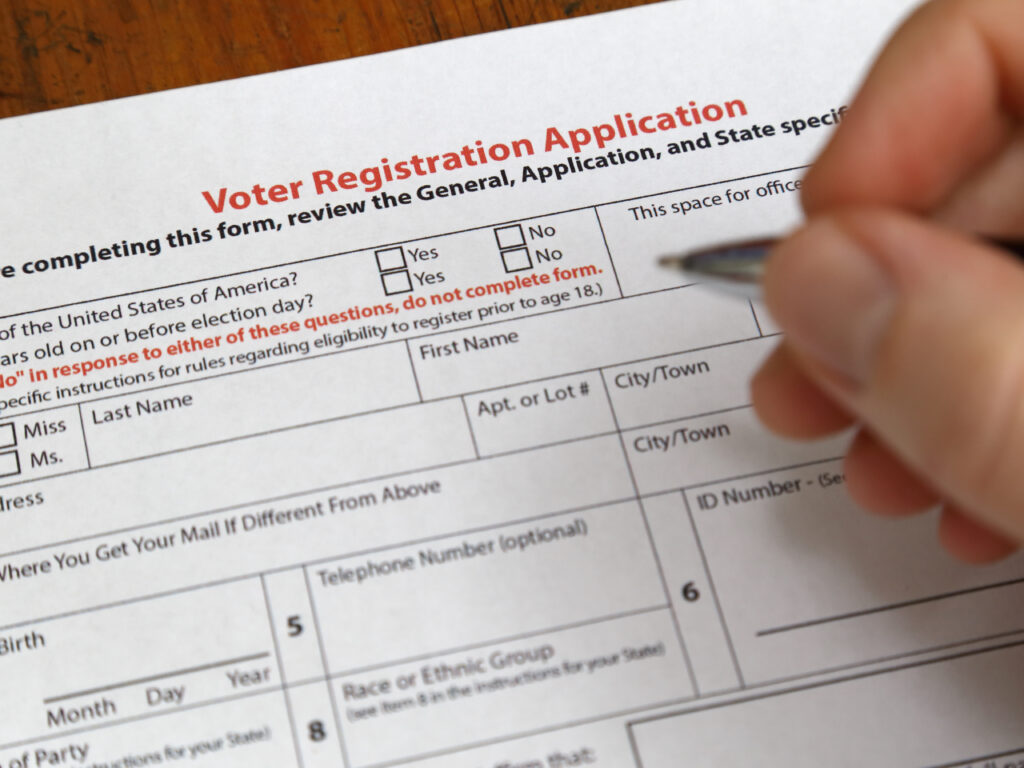Key Federal Elections Agency Moving Forward With Trump’s Anti-Voting Order

An independent federal agency is going forward with President Donald Trump’s sweeping elections executive order despite a barrage of lawsuits challenging it as an assault on states’ constitutional authority to run their own elections.
Trump’s order, in part, directs the Election Assistance Commission (EAC) — an independent bipartisan commission — to require eligible voters to show proof of citizenship when using a federal form to register to vote or update registration info.
On April 11, the commission sent state election officials a letter “seeking consultation” on how they would apply Trump’s proof of citizenship demand if his order ultimately stands — and how the new requirement would affect voter registration in their states.
The requirement would bar millions of voters who lack easy access to citizenship documents from using the National Mail Voter Registration Form and could force states to rapidly shift their registration procedures. If states don’t or can’t comply, Trump’s order directs the EAC to punish those states by withholding federal funding.
Several voting rights organizations, including the Brennan Center for Justice and the ACLU, urged the EAC to not comply with Trump’s order, arguing that the president has no authority under the Constitution, or the federal law establishing the EAC, to direct its commissioners to act.
But the EAC is nonetheless moving forward with Trump’s order and initiated the process of putting the citizenship requirement into effect. In the letter, which was sent by EAC Executive Director Briannna Schletz, the commission also described Trump’s order as providing “instruction to the EAC.”
In court, the Trump administration has argued that a preliminary injunction against the executive order is not needed because no steps have been taken to put it into effect.
The Democratic Party, which is being represented by Elias Law Group, argued in a court filing Thursday that the EAC’s letter to election officials indicates that the order is being implemented. (Elias Law Group Chair Marc Elias is the founder of Democracy Docket.)
“According to [the Trump administration], there is just no telling whether executive branch agencies will, in fact, comply with the President’s explicit commands. But just three days after Plaintiffs moved for emergency relief, the Election Assistance Commission began acting on the Order’s commands by sending letters to elections officials nationwide,” the Democratic Party, which is among a number of organizations suing Trump’s order, said in the filing.
In a hearing later Thursday, the Department of Justice continued to argue that the letter was unrelated to implementing Trump’s order.
District Judge Colleen Kollar-Kotelly, who was appointed by former President Bill Clinton, appeared skeptical of that argument. The judge noted that the letter, at the very least, formally notified states that the commission considers the executive order to be a mandate.
Congress designed the EAC so that the president has very little legal authority over it. Lawmakers defined the commission as an “independent entity” that must operate with partisan balance and limited control from the White House.
No more than two members from the same political party can serve on the commission, and while the president can nominate commissioners, congressional leaders are able to recommend potential appointees and the Senate ultimately confirms them.
Lawmakers also limited the commission’s regulatory or rulemaking authority. Federal law, for example, requires the EAC to consult states to create or amend the National Mail Voter Registration Form and limits the information that the commission may require from people using the form to register or update their registration.
The commission can also only change the form if three out of four of its commissioners vote in favor, which ensures that all of its decisions are bipartisan.
Trump also commanded the EAC to decertify all voting equipment — like vote tabulators or ballot markers — currently in use, though it’s unclear if the commission is also moving forward with that directive.
If the EAC does, it could paralyze elections in dozens of states and force lawmakers to quickly change state voting laws or election officials to take on the daunting task of overhauling how they administer elections by redesigning ballots, adopting new systems or potentially hiring more election workers.